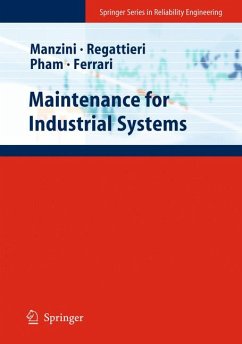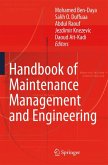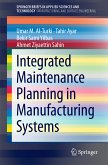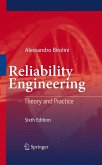Maintenance for Industrial Systems addresses this need by introducing an original and integrated idea of maintenance: maintenance for productivity. The volume starts with the introduction and discussion of a new conceptual framework based on productivity, quality, and safety supported by maintenance. Subsequent chapters illustrate the most relevant models and methods for planning, organising, implementing and controlling the whole maintenance process. Several examples of problems supported by solutions, and real applications to help and test the reader's comprehension are included.
Maintenance for Industrial Systems is a valuable source of information for engineering students, doctoral and post-doctoral students, and also for maintenance practitioners and managers of industrial or service companies.
Springer Series in Reliability Engineering publishes high-quality books in important areas of current theoretical research and development in reliability, and in areas that bridge the gap between theory and application in areas of interest to practitioners in industry, laboratories, business, and government.
Dieser Download kann aus rechtlichen Gründen nur mit Rechnungsadresse in A, B, BG, CY, CZ, D, DK, EW, E, FIN, F, GR, HR, H, IRL, I, LT, L, LR, M, NL, PL, P, R, S, SLO, SK ausgeliefert werden.









